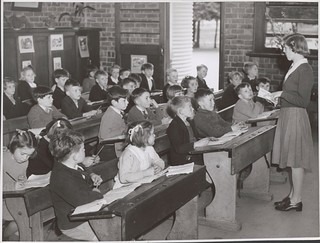Technology is everywhere, it has become a huge part of our lives. Our phones are now our computers, our diaries and our cameras. Our computers are now our social tool, the way we network and connect. We have tablets, kindles, selfie sticks and smart watches; so isn’t it only natural that technology has a place in our classrooms?
The advancements in technology within my lifetime have been incredible. My generation has seen so much change that we are among the youngest to become nostalgic. Technology offers us so many new and exciting opportunities, it brings people together and unlocks a whole world of information. Bringing it into the classroom to enhance learning is imperative but we must also be aware of its dangers and challenges and how we, as teachers, can combat them.
The guidance set out by the GTCS addresses both our personal and professional relationship with technology. Using this as a platform we must be mindful of the way we conduct ourselves online. How do we use our accounts? Is our Facebook private or public? How do we come across to others online? I know that for me Facebook is a personal space, it has all its privacy settings in place and I would never add anyone who wasn’t a friend or family member.
But what about an online space which we use for professional purposes? Work emails, Glow, School Twitter feeds etc. How do we utilise these whilst still maintaining the same level of professionalism and keeping the same boundaries with our pupils? Well, it’s pretty simply really; we just need to act in the same way we would within the classroom. Our conversations online should be professional, considered and convey the same relationship we hold with the recipient as in real life. We should think carefully before we post onto professional spaces: Is this message coming across how I want it to? Do I sound angry or confrontational? Am I being too relaxed and personal?
Once we have mastered this art we then must consider how we influence our pupils to behave in a safe and appropriate way when they are online. There are many websites at our disposal which offer helpful and up to date information on how to address internet safety with primary aged children. There are also sites such as NSPCC Netaware that give you current information on new websites and apps children in your class may be using. This is an invaluable tool as we as teachers need to know what our children are accessing in order to keep them safe and resolve any issues which arise.
In my opinion, one of the best ways we can encourage a safe and appropriate use of technology within our classes is to utilise it to its fullest. If we introduce children to new, fun and creative avenues for them to explore online they are less likely to misuse it or to stray into inappropriate content by looking for something fun to do. On top of this we must also address any issues that do occur within the class and use them as learning opportunities: what do you think went wrong here? Why? How could this have been avoided? By creating an open and honest culture we are showing pupils that they can come to us for advice and guidance and that they wont get in trouble for making a mistake.
A great way in which we can increase the profile of internet safety within our classes and schools is by taking part in ‘Safer Internet Day.’ This event offers us the opportunity to center lessons, assemblies and activities around the idea of safe conduct online. It gives the children a chance to be interactive in their learning as well as to voice their concerns and questions.
Overall it can be said that my view on Social Media and Online spaces/resources is a positive one. As a teacher I want to incorporate it into my classes as much as possible after all, it is a huge part of the world we are preparing our pupils for.

 Through the implementation of the CFE we are seeing a shift to a more collegiate way of working. Teachers are encouraged to interact within the school whether it be through: staff meetings, team teaching, joint planning, work parties or school events. As well as this teachers are expected to be enquiring practitioners.
Through the implementation of the CFE we are seeing a shift to a more collegiate way of working. Teachers are encouraged to interact within the school whether it be through: staff meetings, team teaching, joint planning, work parties or school events. As well as this teachers are expected to be enquiring practitioners.

